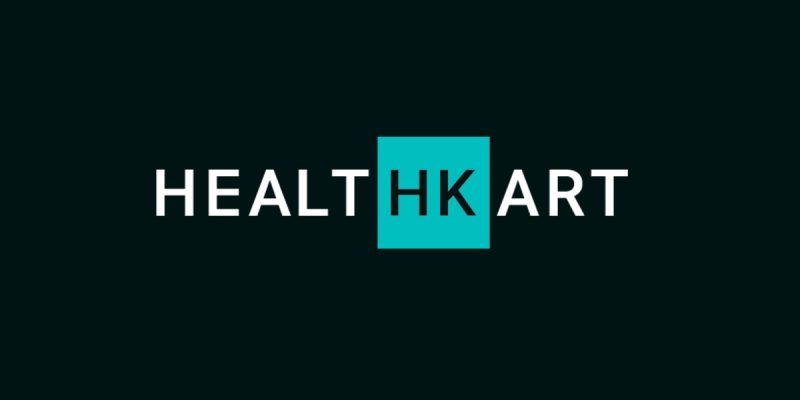In today’s fast-paced world, prioritizing your health is non-negotiable. One invaluable tool that ensures you stay on top of your well-being game is the Health Card. Dive into the comprehensive guide below to unlock the secrets of this essential document.
A health card is a document that serves as proof of an individual’s enrollment in a healthcare program or insurance plan. It typically contains essential information such as the person’s name, date of birth, unique identification number, and details about their coverage. Health cards are issued by healthcare providers, insurance companies, or government agencies to facilitate easy access to medical services.
Understanding the Essence of a Health Card
What is a Health Card and Why Does it Matter?
A health card is not just a piece of plastic; it’s your passport to quality healthcare. This card encapsulates vital information about your medical history, allergies, and current fitness status. Having it in your wallet can make all the difference in times of emergencies. A Card is more than just a piece of plastic; it’s a key to a world of healthcare possibilities. This personalized identification card holds your medical history, treatment records, and essential fitness information, ensuring that your fitness journey is seamless and well-documented.
Navigating the Healthcare Landscape: Why Does it Matter?
Streamlined Access to Care
Having a Card in your possession isn’t just a formality; it’s your express pass to streamlined healthcare access. Imagine avoiding the tedious paperwork and long queues—your Health Card is the magic wand that opens the doors to timely medical attention.
Comprehensive Health Tracking
In the fast-paced world of healthcare, having a comprehensive record of your medical history is priceless. Your Health Card acts as a digital guardian, meticulously tracking your fitness milestones, facilitating better-informed decisions, and ensuring continuity of care.
Emergency Preparedness
Picture this: an unforeseen medical emergency. In such critical moments, your fitness Card becomes your silent hero. Emergency responders can swiftly access vital information, enabling them to provide the right care promptly. It’s not just a card; it’s a lifeline.
Cost-Efficient Healthcare
Healthcare expenses can be daunting, but with a Health Card in hand, you’re better equipped to navigate the financial aspect. Enjoy potential cost savings, exclusive discounts, and health insurance card benefits—making your health journey not only smoother but also budget-friendly.
What is government health card?
A government fitness card is an official document issued by the government to its citizens, providing them with access to various healthcare services and benefits of health card. This card is typically designed to ensure that individuals can receive medical attention without facing financial barriers. Government health cards often serve as a form of identification within the healthcare system, allowing individuals to access subsidized or free healthcare services, including doctor consultations, medications, and hospital treatments. The specifics of the benefits and coverage offered by the health card vary from one country to another, and sometimes even within different regions of a country. These cards play a crucial role in promoting public health and ensuring that citizens have equitable access to essential medical services, regardless of their economic status.
Navigating the Benefits: Why You Need a Health Card Today
1. Seamless Access to Medical Facilities
With a health card in hand, you effortlessly glide through the doors of medical facilities. Say goodbye to the hassle of paperwork; your fitness card expedites the process, ensuring you receive prompt attention.
2. Cost-Efficient Healthcare
Healthcare expenses can be daunting, but not with a health card. Enjoy the perks of discounted medical services and prescription medications, making wellness an affordable journey.
3. Emergency Preparedness
In times of crises, seconds count. A fitness card ensures that crucial medical information is readily available to first responders, facilitating swift and accurate treatment.
How to Obtain Your Health Card: A Step-by-Step Guide
1. Contact Your Healthcare Provider
Initiate the process by reaching out to your healthcare provider. They will guide you through the application, ensuring you submit all necessary documents for a hassle-free experience.
2. Verify Your Information
Double-check the accuracy of the information on your fitness card. Any discrepancies could lead to complications in emergencies, so precision is key.
3. Keep It Handy
Once you have your fitness card, make it a constant companion. Store it securely in your wallet or purse, ensuring it’s within reach whenever you need it.
What Details Are Included on a Health Card?
A health card typically contains the following information:
- Personal Information:
- Full name
- Date of birth
- Gender
- Address
- Contact information
- Health Identification Number:
- A unique identifier assigned to the individual for health care purposes.
- Emergency Contact Information:
- Names and contact details of individuals to be contacted in case of emergencies.
- Insurance Information:
- Details of health insurance coverage, including policy number and insurer information.
- Blood Type:
- Information about the individual’s blood type, which is crucial in emergency medical situations.
- Allergies:
- Any known allergies that the individual may have, helping healthcare providers avoid potential adverse reactions.
- Chronic Medical Conditions:
- Information about chronic health conditions or ongoing medical issues that require attention.
- Vaccination Records:
- Details of vaccinations received, including dates and types.
- Medication Information:
- List of current medications, dosage, and frequency. This is important for healthcare providers to avoid potential drug interactions.
- Primary Care Physician Information:
- Contact details and information about the individual’s primary healthcare provider.
- Organ Donor Status:
- If the individual has opted to be an organ donor, this information may be included on the health card.
- Medical History:
- General medical history, surgeries, and significant medical events that may impact current or future healthcare.
- Immunization Status:
- Information about the individual’s immunization history, including booster shots.
- Recent Medical Tests:
- Results of recent medical tests or screenings, such as blood tests or imaging studies.
- Next of Kin:
- Information about the individual’s closest family member or next of kin.
It’s important to note that the specific information included on a card may vary depending on the country, region, or healthcare system. Additionally, individuals should keep their fitness card secure to protect their privacy and sensitive medical information.
Conclusion: Empower Your Health with a Card
In conclusion, a health card is not just a card; it’s your shield against unforeseen fitness challenges. Take the leap today, secure your well-being, and unlock a world of seamless healthcare access. Your health deserves it.
FAQs:
Yes, most Health Cards are valid nationwide, offering you flexibility and convenience, whether you’re seeking medical attention in your hometown or across the country.
The Health Card typically stores essential information, including your medical history, prescribed medications, and emergency contacts. Rest assured, stringent security measures are in place to safeguard your sensitive data.
Many Health Cards extend their benefits to family members, promoting holistic wellness for you and your loved ones. Check with your healthcare provider to explore family coverage options.



